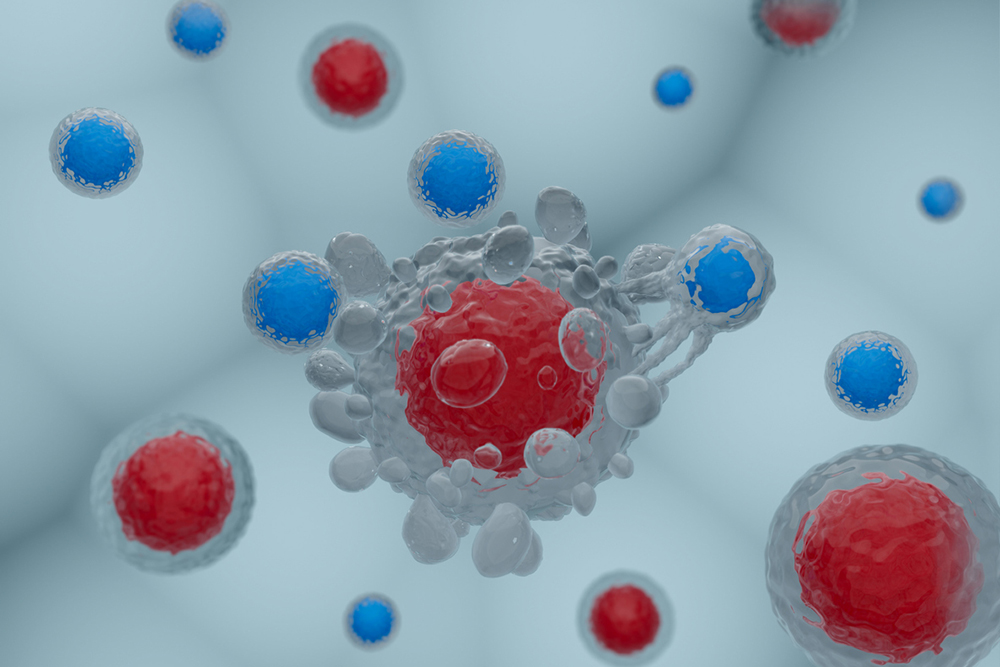
St. Jude Children’s Research Hospital recently reported an extraordinary remission rate in children with leukemia thanks to CAR T-cell therapy.
Researchers at St. Jude collaborated with medical professionals at Shanghai Children’s Medical Center in China to develop an immunotherapy combination – featuring CAR T-cell therapy – that led to remission for nearly all children with relapsed B-cell acute lymphoblastic leukemia (ALL).
The data was published in the Journal of Clinical Oncology and on the St. Jude Children’s Research Hospital website.
Near-100% remission rate for children in CAR T-cell study
The remission rate was an astounding 99% for the 225 children in the study. The American Cancer Society defines remission as “a decrease in or disappearance of signs and symptoms of cancer.”
Also impressive, only 25% of the children relapsed within one year following CAR T-cell treatment. Relapse is when cancer returns after the patient was in remission. Another word for relapse regarding cancer is “recurrence.”
“This research is evidence of what we can accomplish together and is just the latest example of scientific discoveries our teams can achieve. The results of this study will bring hope and options for cure to children with refractory leukemia all over the world.” — Carlos Rodriguez-Galindo, MD, chair of the St. Jude Department of Global Pediatric Medicine
Combining two types of CAR T-cell therapy
The two medical institutions created a study to test a CAR T-cell tag team for children with acute lymphoblastic leukemia. Scientists created two sets of CAR T cells with different protein targets and delivered both to the young leukemia patients. They hoped the combination would kill all cancer cells, and this hope was rewarded.
“We have learned that you must hit the cancer cells with combination therapies with different mechanisms of action at the same time to cure patients.” — Ching-Hon Pui, MD, chair of the St. Jude Department of Oncology
CAR T-cell therapy is an emerging, innovative type of immunotherapy for cancer. It is a form of cancer cell and gene therapy, meaning it engineers immune cells at the genetic level to combat cancer more effectively.
CAR is an acronym for “chimeric antigen receptor.” The process for CAR T-cell therapy is:
- Removal of T cells, a type of immune cell, from the patient’s blood
- Engineering the T cells in a laboratory by adding a special gene
- New gene creates a protein receptor called a chimeric antigen receptor
- Returning the engineered T cells into the patient’s blood, where they look for cancer cells with protein associated with the new receptor
A testament to the potential of cell and gene therapy
The tremendous work of St. Jude Children’s Research Hospital and Shanghai Children’s Medical Center proves that this cell and gene therapy can effectively treat many children diagnosed with leukemia.
The U.S. Food and Drug Administration approved the first CAR T-cell therapy in 2017 for acute lymphoblastic leukemia. Five other CAR T-cell therapies have been approved since then for a variety of blood cancers.
The next objective is developing cell and gene therapies for solid tumors, such as lung cancer, brain cancer and more. Alliance for Cancer Gene Therapy is committed to furthering research and clinical studies featuring CAR T-cell therapies, as well as other cell and gene therapies, for these difficult-to-treat tumors.
Please consider donating to ACGT today to help us advance cell and gene therapy research. Your gift today will help us transform how cancer patients are treated tomorrow. Please sign up for ACGT’s email communications to stay informed on cell and gene therapy research.
Page sources
- New study achieves 99 percent remission in children who relapse with most common childhood cancer. St. Jude Children’s Research Hospital. Retrieved from: https://www.stjude.org/inspire/news/new-study-achieves-99-percent-remission-in-children-who-relapse-with-most-common-childhood-cancer.html. Accessed: 12/19/2022.



